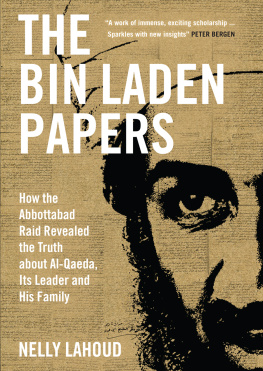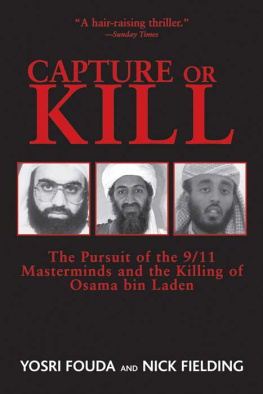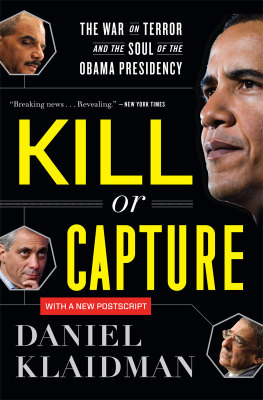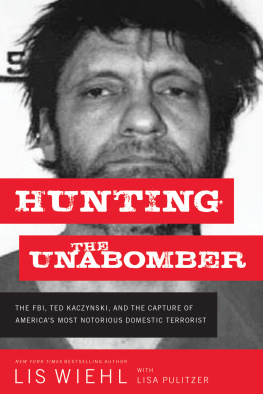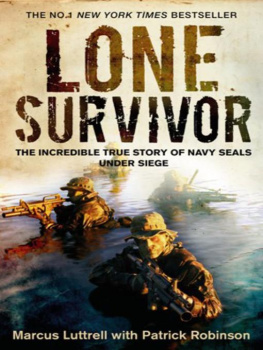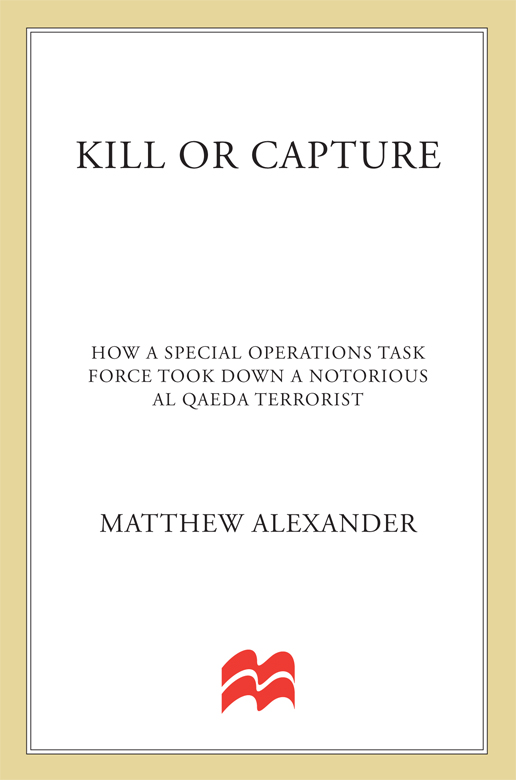To the heroes of this war
the soldiers we lost in the hunt
CONTENTS
AUTHORS NOTE
The views contained within are those of the author and do not represent the views of the United States Army, the United States Air Force, the Department of Defense, or the U.S. government. This book was reviewed and cleared for publication by the Department of Defense. Minor details have been altered to protect ongoing operations, personnel, and classified information.
PROLOGUE
Chasing Terrorists
I get asked all the time, Whats it like chasing terrorists? Well, theres never a dull moment. Every time you think youve seen it all, theres a new twist. You sit down in front of a guy who just cut somebodys head off with a machete, make friends with him and, surprise, you learn hes a human being. Killer by day, family man by night. After he cleans the blood off his blade, he goes home at night, eats dinner with the family, tells a joke at the supper table, and tucks his kids into bed. I think thats what Americans dont understand. To the Sunnis we were fighting in Iraq who decided to join al Qaeda, what they were doing was honorable. They were fighting. Ill never condone their tactics, but I understood why they were fighting, and because I understood why they were fighting, I could get them to talk. How? By using that information against them. When Sun Tzu said, Know thy self, know thy enemy, a thousand battles, a thousand victories, he wasnt bullshitting. Interrogations are all about knowing yourself and your enemy. Or, I would argue, transforming yourself and your enemy.
The best interrogators are one-third salesman, one-third dramatic actor, and one-third psychologist. They are the most able to adapt to the detainees worldand then to transform it. I can become a father, a brother, a husband, or a friend whatever it takes to convince a detainee to talk. This is about getting information, not retribution or punishment. An effective interrogation is not a harsh interrogation. Words like soft and hard mean nothing to meeither an interrogation yields accurate and timely intelligence or it doesnt.
The techniques we use must be in accordance with our values and principles. We are Americans and we must fight like Americans. When we face adversity we do what Americans have always done: We improvise, adapt, and overcome. What we dont do is break the law. We cannot become our enemy in trying to defeat him.
There are several legendary American interrogators. Men youve never heard of who achieved greatness in this often misunderstood profession. Men like Major Sherwood Moran, who spent forty years in Japan as a missionary before signing up for the marines in his fifties during World War II. Moran convinced numerous Japanese prisoners of war to talk. How was he able to do his job against an enemy so dedicated to their emperor that they were willing to be suicide bombers? In Morans own words, an interrogator needs to be a real wooer. Another World War II interrogator, Technical Sergeant Grant Hirabayashi (a Japanese American Nisei soldier), also used relationship-building approaches to great success while assigned to Merrills Marauders, fighting across Burma.
On the other front, a secretive interrogation unit at Virginias Fort Hunt, better known as PO Box 1142, successfully interrogated high-level German prisoners. Their arsenal? Cigarettes and chess. They never laid a hand on a detainee, but they got them to talk by getting to know them.
In Vietnam, Orrin DeForest, a former military criminal investigator, made a name for himself by incorporating his law enforcement skills into his work as a CIA interrogator. He taught South Vietnamese soldiers how to use noncoercive relationship-building approaches and combined that with a meticulous system of manual data collection. Halfway through the war, for the first time, the United States was able to form a clear picture of the Vietcongs operational architecture in South Vietnam. Another Vietnam legend, Colonel Stuart Herrington, also successfully interrogated numerous prisoners using these techniques.
A history of great interrogators would be incomplete without mentioning Hanns Scharff, a German Luftwaffe interrogator in World War II. Many an Allied pilot unwittingly divulged information to Scharff because of his ability to put prisoners at ease with his good manners. Again, it was relationship-building approaches and a detailed informational database that led to Scharffs success. Scharff became an American citizen after the war and a respected mosaic artist. His work is still on display at Californias Disneyland.
After 9/11, the U.S. government forgot its rich history of conducting humane (and successful) interrogations based on relationship building. It was too easy to indulge in hate for our enemies and give in to the desire for retribution following the tragedy of that day. We invaded Afghanistan, rightly I believe, but the interrogators there found the methods in the Army Field Manual ineffective against detainees. Its not surprising why. They didnt understand the culture of the men they faced. These werent the Cold War soldiers they were trained to interrogate. Frustrated by the lack of intelligence information coming from interrogators, the Bush administration turned to so-called experts, who had never conducted an interrogation. They decided to take the gloves off, abandoning decades of military interrogation knowledge and tradition. The torture and abuse of prisoners was approved at the highest levels of government and encouraged by senior military leaders, in complete contradiction to the militarys own doctrine, training, and tradition.
Then came the invasion of Iraq. The army was stretched and the pool of interrogators ran dry. So they called the air force and the air force called me. For the second time in my career, I put away my surfboard, buzzed my sun-bleached hair, and volunteered to go to the war in Iraq.
In war, you get swallowed up, especially when every day you are going outside the wire chasing terrorists. The hunt becomes all consuming. You eat, drink, and sleep it. When we had an hour here or there to run to the chow hall, our conversations drifted to interrogations and detainees. We discussed sleights of hand in convincing detainees to talk. We debated how to improve the methods, adding new twists, but we also discussed the personal lives of the men we captured. Who were they? Why were they fighting? Why were we here? Were we making a difference? We knew that for every terrorist leader we captured or killed, there were ten ready to take his place. In ten or twenty years, would anyone care about what we were doing?
Its been said that in war, you dont fight for your country or for a cause. You fight for the guy next to you. Well, thats true, and any one of us would have gone to great lengths to defend the other, but I felt as if I was also fighting for someone else. I felt like a protector. A protector of the Iraqi mother who walks her daughter to the market, only to end up another statistic on a pie chart. A protector of the father, a taxi driver whos in the wrong place at the wrong time when a roadside bomb goes off and loses both legs. A protector of the female journalist punctured twenty times by a power drill before being decapitated. Those are the people I feel Im fighting for. Do I fight for my country? Damn right I do. Do I fight for the soldier next to me? Hell, yes. Yet how do I feel in the middle of the chase for a terrorist? I feel like there are a thousand Iraqis out there right now who have no idea that tomorrow they will be blown to bits if we dont find our target tonight. For those innocent civilians, Im also going to fight.



